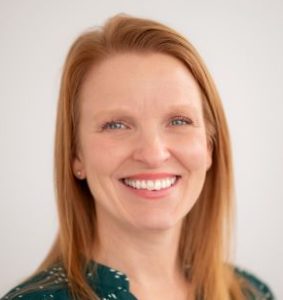

New York’s attorney general is no stranger to dramatic press conferences, high-visibility lawsuits and, possibly, grandstanding for her own political gain.
But she also has a track record of building solid cases on behalf of wronged New Yorkers, and the 152-page civil suit she filed against nursing home owner Ephram “Mordy” Lahasky and several of his business partners this week certainly seems to fall into that category.
Letitia James (D) hopes to push Lahasky out of ownership and management roles at The Villages, a 120-bed facility close to Rochester and Lake Ontario. There’s no question that quality at the facility is not what it needs to be; the building rates only one star in the Five-Star rating system and was hit with more than $70,000 in penalties during the pandemic.
James’ lawsuit targets the people and mechanisms that might have allowed that low quality to take root, and she largely blames a complicated network of business relationships for siphoning money out of the nursing home even as frontline staff faced the pandemic. It’s an allegation that the owners will now have to defend in court. But in the meantime, it’s all of skilled nursing that suffers.
By and large, it’s the sector’s reputation that takes a serious hit when bad practices and shortcuts that threaten residents come to light. A lone provider, buoyed by a multi-company network that stretches across several states and taking proceeds from all of them, may be able to pay a fine in one place and walk away relatively unscathed in others.
But residents and families who are subjected to care less than they deserve will continue to pay higher stakes, as do cities or states that see facilities driven into bankruptcy or out of business after years of underinvestment.
Yes, states should certainly use their investigative and enforcement powers to identify bad apples and drive them out of the sector, a concept endorsed by the sector’s most well-known leaders.
Operators are tired of being painted by the same brush consumer advocates and mainstream media use to smear owners under legal scrutiny. Some might prefer certain owners never make it into positions of control.
That’s why more states need to shore up their change-in-ownership processes, to make certain that unscrupulous or wholly inadequate operators are sifted out of the business before they blaze a trail of destruction. They must have mechanisms that allow insights into a provider’s performance in other states, beyond net worth and holdings, and the ability to act on that information.
Experts, including David Grabowski and Michael Wasserman, have called for more federal rules around ownership, a path the Centers for Medicare & Medicaid Services could be walking down as it enhances visibility into its own ownership data.
In either case, more oversight of the right details is the only real way to prevent another Skyline-like implosion.
As is the case with Lahasky, Skyline owner Joseph Schwartz swiftly built an empire across multiple states. In Schwartz’s case, he had little experience in the nursing home business and often partnered with family members on deals, rather than experienced providers. But state after state OK’d his entry into long-term care, where he quickly got buildings into financial trouble and sent dozens into receivership.
Whether Mordy Lahasky and his crew really did anything wrong in manipulating the system to derive higher profits from the nursing home they owned may ultimately be up to a judge or jury to determine.
Whether he or others will be able to repeat the same questionable behaviors elsewhere — and further harm patients and the sector’s reputation — is a matter up to lawmakers and regulators. Their willingness to address this major blindspot says a lot about how much they really care about the future of long-term care itself.
Kimberly Marselas is senior editor of McKnight’s Long-Term Care News.
Opinions expressed in McKnight’s Long-Term Care News columns are not necessarily those of McKnight’s.




